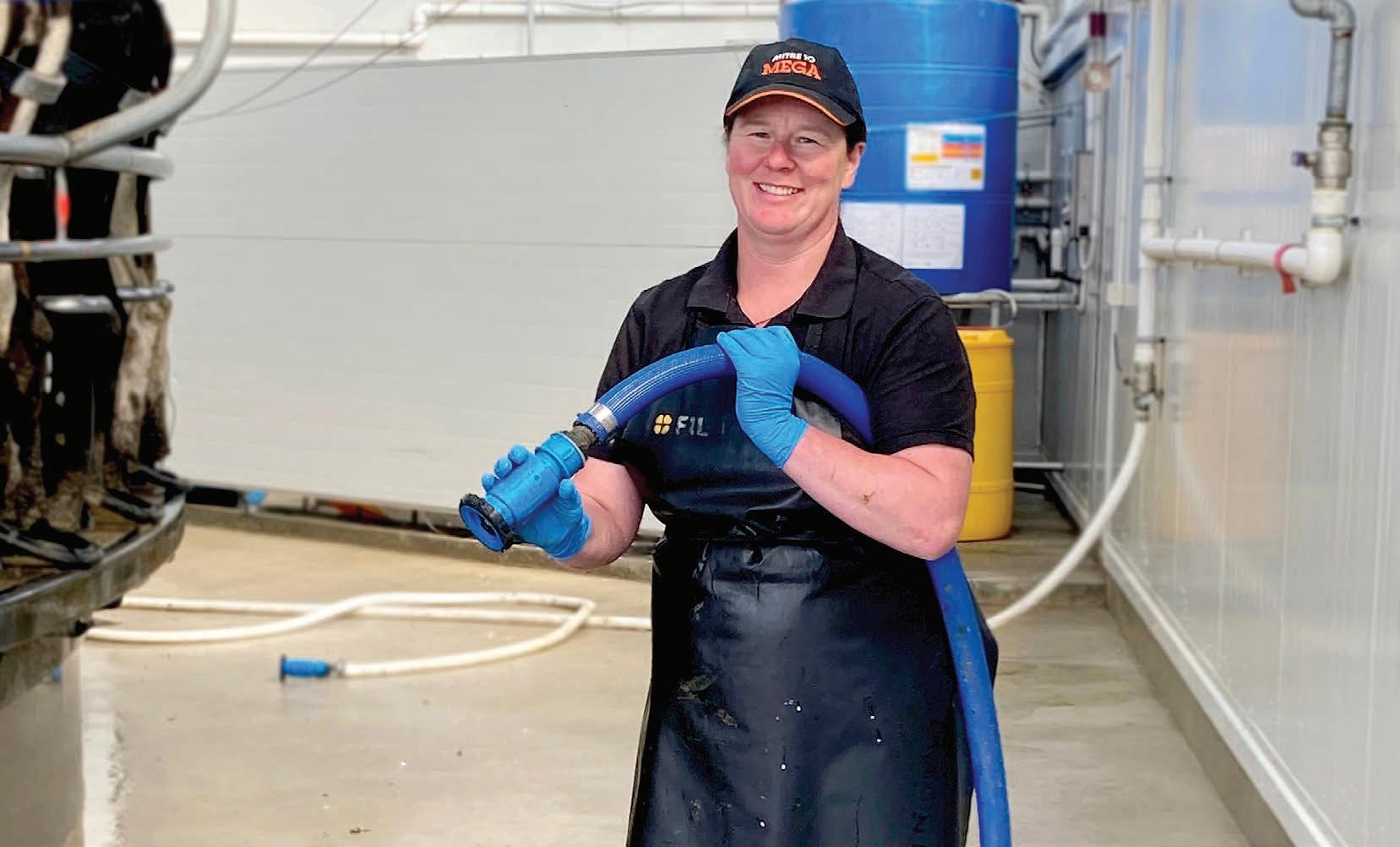
4 minute read
Blue September Supporting prostate cancer
True Blue
Across Aotearoa New Zealand this year, 4000 men will be told they have prostate cancer, making it this country’s most diagnosed cancer.
The Prostate Cancer Foundation of New Zealand (PCFNZ) is committed to being the voice of more than 42,000 men living with the disease in New Zealand advocating on their behalf for better health outcomes today and for future generations.
This year, Blue September hopes to raise more than $1 million in muchneeded funds, every cent of which goes towards providing essential wraparound support services for men and their families living with prostate cancer.
“Every year we are blown away by the support we receive from across New Zealand during Blue September,” Peter Dickens, chief executive of PCFNZ, says.
“Without the passion and commitment shown to us by our Blue September community, we would not be able to provide the services that patients and those close to them rely on every day across Aotearoa New Zealand.”
“Funds raised are used for vital research into the disease and its impact, to create awareness through our education and outreach programmes, and to advocate for better access to diagnosis and treatments that are so desperately needed.
“Prostate cancer is the most diagnosed cancer in New Zealand but if it’s caught early, it is also treatable. It’s extremely frustrating and should be an issue of national concern that despite all evidence pointing to early detection and appropriate treatment making the difference between life and death, methods of detecting the disease, treatments and medicines for prostate cancer patients that are considered standard and funded in other countries are severely limited here, or even nonexistent outside of the main centres.
“Inequities are also painfully evident, as the figures clearly show that tāne Māori diagnosed with prostate cancer experience a disproportionately higher death rate than other New Zealand men. It’s unnecessary and we should all find it unacceptable.
“The 42,000 men currently living with prostate cancer in New Zealand are not just a statistic, they are all dads, sons, grandads, and best mates who do not deserve to have the opportunity to share in the lives of their families and those around them taken away far too soon, when an achievable alternative exists.
“The social impact of this disease is immeasurable and we’re in danger of losing a generation of men to prostate cancer without a co-ordinated national approach. We’re indebted to the people that take part in a Blue Do on our behalf – thank you, no idea is too small, too wacky, or too blue.” n
Blue September is the major annual fundraising and awareness campaign for Prostate Cancer Foundation of NZ and people are encouraged to do something blue.
MORE:
Support the one in eight Kiwi men and their families affected by Prostate Cancer – do something blue this September. Visit www.blueseptember.org.nz
This Blue September do something blue to help a mate through.
Every year 4,000 kiwi men are diagnosed with prostate cancer. The funds raised by every Blue Do help us make a real difference to the lives of blokes living with prostate cancer.
Organise your Blue Do or blueseptember.org.nz
DONATE NOW
Lack of rural health services distressing
Rural communities are suffering because a lack of access to decent health services and it is time something was done about the dangerous situation, Rural
Women New Zealand says.
“The health and wellbeing of rural communities is at risk of further deterioration if something is not done soon to resolve the issues facing people who live, work and play in rural Aotearoa
New Zealand,” RWNZ National President
Gill Naylor says.
“The challenges rural families face with access to health services are just about too many to list on one hand.
However, a few that stand out are the lack of rural midwives, lack of rural nurses and GPs, lack of rural mental health services, delays in emergency services such as ambulances, and long distances to travel for such services as allied health and cancer treatment.
“While we are pleased to see the government commit to both a women’s health strategy and a rural health strategy, we are wanting to see resources and plans activated to ensure rural women and girls do not miss out on health needs because of their post code.
“One of the solutions we have heard is increasing the availability of telehealth, which we support. However, that will only work where digital connectivity is fit for purpose – and there are many rural communities without this.
“We know the challenges are because of a mixture of business models which don’t suit rural communities and global challenges with the covid pandemic, staffing and training. However, the government really has to take the lead by resourcing solutions.
“Rural communities are the backbone of Aotearoa New Zealand and deserve equity in the provision of health services.
“RWNZ is looking forward to working with the government and health providers to ensure that the rural health strategy and women’s health strategy work for rural communities – our lives depend on it,” Naylor says. n
THE NEW BLUE DISPENSER WITH STAINLESS STEEL DROPPERS

• New installations • Upgrades • Nationwide installs – great back up support













